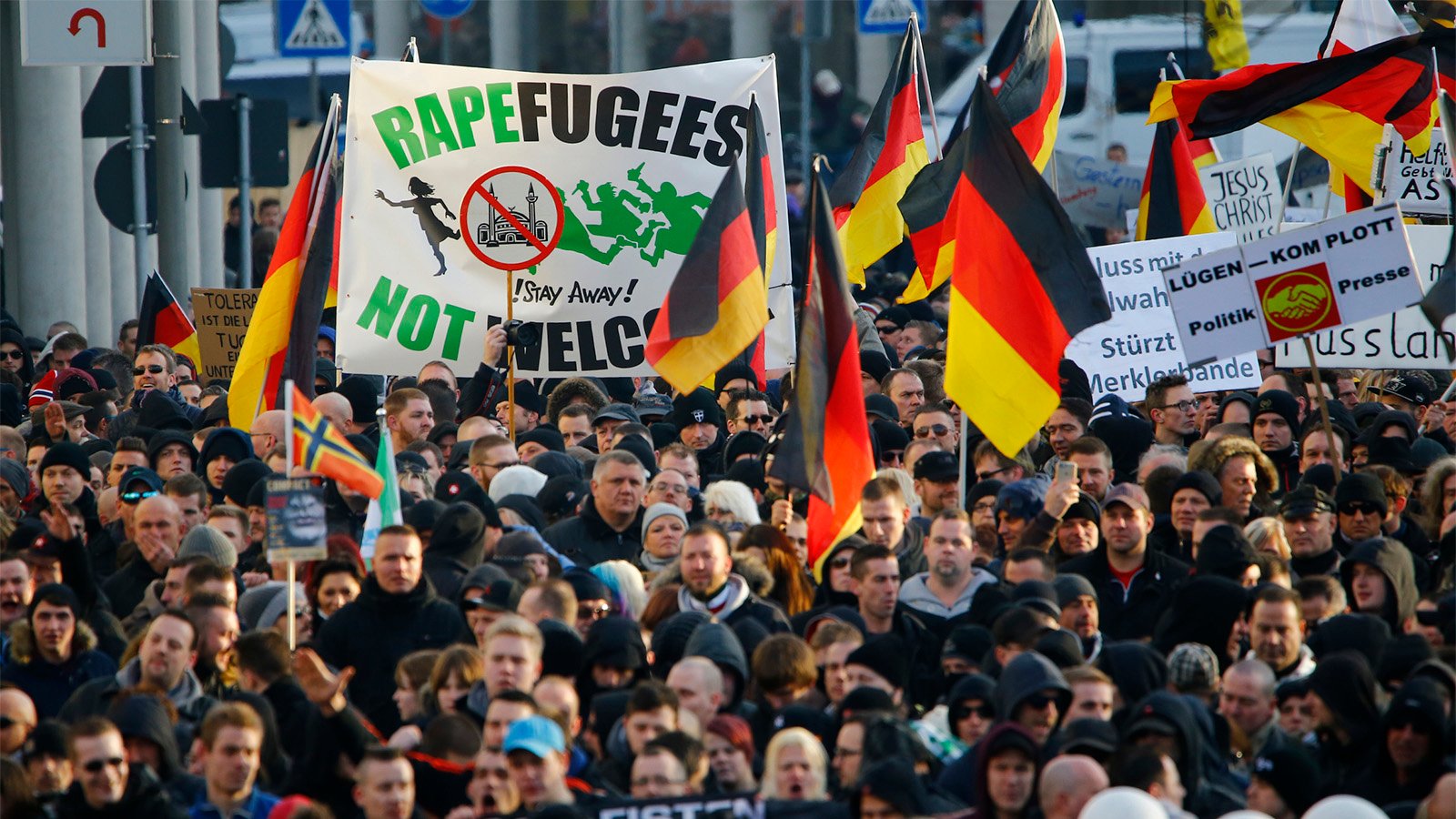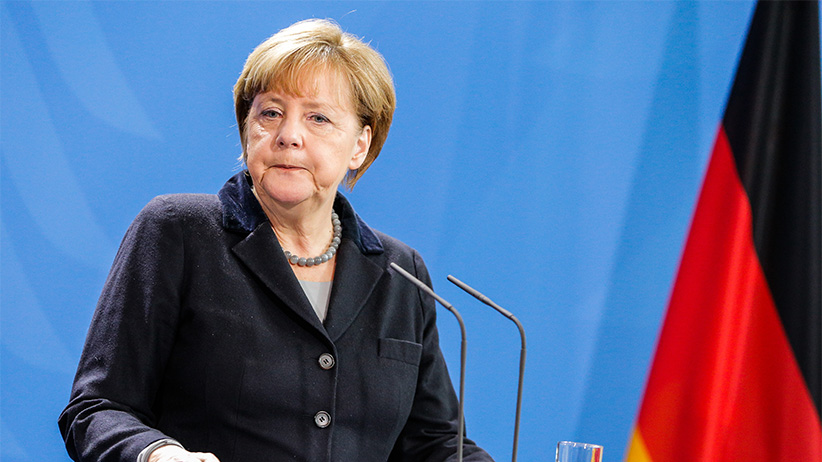Germany’s real problem with refugees
While it may be ridiculous to criticize race, it is reasonable to criticize culture, writes Scott Gilmore
Share

Coming back from another disheartening trip to Afghanistan a few years ago, a series of missed connections left me in Cologne for the night. To raise my spirits, I walked down to its famous cathedral by the Rhine. It was late December and so I found its annual Christmas Fair huddled beneath the enormous twin bell towers. My memory of that accidental visit is almost idyllic: frosty air, the two great spires above, small stalls selling handmade decorations, unseen carollers nearby and the smell of mulled wine.
This week, when news emerged that more than a thousand men, described by police and witnesses as being of North African and Middle Eastern descent, rampaged through the fair sexually assaulting women, I gave it a jaundiced eye. A story about mobs of Arab men descending on a European cathedral to rape Christian women seemed too much like a bigot’s fever dream, and I expected further reporting would debunk it. Sadly, further reporting merely expanded on the outrage.
Police are now investigating over 500 criminal complaints from that night in Cologne. The majority of those arrested so far are indeed asylum seekers. Other German cities reported similar attacks. Across Europe, more stories emerged. In Sweden, for example, police have been accused of covering up a series of mass sexual assaults committed by gangs of Afghans who groped and molested girls as young as 11 or 12 at a popular music festival.
The Cologne attacks immediately shifted the refugee debate in Germany. Previous supporters of an open border policy began to argue that too many had now arrived, more than one million in the last year. German Chancellor Angela Merkel, who has pushed the hardest among European leaders to accept more asylum seekers, quickly found herself in a precarious position. Demands for her resignation increased as public opinion began to turn. And not just in Germany. Across Europe and North America, from the racist right to the feminist left, people are pointing to Cologne and claiming it’s simply too dangerous to accept more asylum seekers from countries like Syria.
This is the part of the column where you would normally expect me to argue the odds of being raped by a refugee are somewhat lower than being attacked by rabbits, where I might make some reference to instinctive bias, and then suggest everyone should just calm down.
But they’re right. When refugees arrive in Western countries, they bring with them violent and sexist cultural attitudes that contributed in part to the mess they fled. Consider a global survey by the Pew Research Center; when asked if women should have equal rights, only 45 per cent of Egyptian men agreed, compared to 97 per cent of Germans. Similarly, not a single Arab or North African nation makes it into the top 100 counties ranked in the most recent World Economic Forum’s gender-gap report. Those medieval attitudes translate into barbaric actions. Due to reporting variances, tracking sexual assault statistics between countries is extremely difficult, but a large comparative database created by the WomanStats Project ranks Muslim countries among the world’s most dangerous places for women. If you’re surprised that some refugee groups in Europe commit crimes at a higher rate than the general population, you’re either not paying attention or you are lying to yourself.

Nonetheless, Merkel’s push for more open borders remains the right policy for both moral and economic reasons. Germany, like most countries in the EU, must defuse a demographic time bomb as its population ages and the number of taxpayers funding the social safety net decreases. And the humanitarian need of the millions displaced from Syria and other conflict zones is real and acute. Bringing these refugees into Western economies also allows them to send remittances back to the families they left behind, creating a flow of relief dollars that surpasses our aid budgets.
These same reasons apply to Canada. This country was built, decade after decade, by the arrival of new blood and diverse cultures. Canada has thrived in a decreasingly Hobbesian world, where the destitute and the vulnerable are not ignored. There is no question we should take in refugees. But this is not the same thing as saying, “Taking in refugees does not create risks.”
These risks, however, are manageable. Unlike Germany, Canada can conduct security screens on every refugee before arrival. After they land we have well-developed cultural integration training, designed to explain the law of the land. Once the refugees are settled, our police and legal systems are among the best in the world, strong enough to keep everyone safe.
The trick, though, is we need to be honest with ourselves. We have to admit that an Arabic-speaking Muslim fleeing Aleppo will stretch our social fabric far more than an English-speaking Anglican moving up from Vermont. In fact, we need to go a step further and acknowledge that while it may be ridiculous to criticize race, it is perfectly reasonable to criticize culture.
There is an objective reason people from around the world want to flee to the West. Our society is more attractive because it is safer, more just, more prosperous and more fulfilling. If we want to keep it that way, we are perfectly justified in telling new arrivals they need to change, to become more German or more Canadian.
The social compact we are offering incoming refugees is simple. We will share our prosperity and safety with you, and in return you will respect our laws. It’s fair and should be obvious, and yet we repeatedly fail to enforce this contract. In Canada it is almost impossible to deport a new arrival, regardless of what crimes they have committed. In Germany, Merkel herself has lamented the fact that the Cologne attackers will probably get off with light sentences and cannot be sent back. Her party agrees, and issued a declaration last week calling for stripping asylum status from anyone convicted of even a single crime. This week, Merkel admitted that “all of a sudden we are facing the challenge that refugees are coming to Europe and we are vulnerable, as we see, because we do not yet have the order, the control that we would like to have.”
This is not a new problem. A hundred years ago Irish immigrants were notoriously criminal. There’s a reason why a certain police vehicle is called a “paddy wagon.” More recently, Jamaican and Somali immigrants have wreaked havoc among themselves and the surrounding communities. Instead of talking about tolerance, the implicit racism of low expectations, we need to be talking about responsibilities. New arrivals have a responsibility to live up to our social and cultural standards. If they can’t, we have a responsibility to send them away.